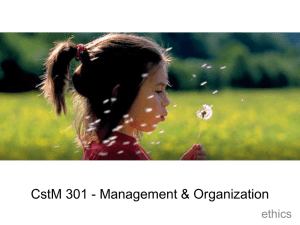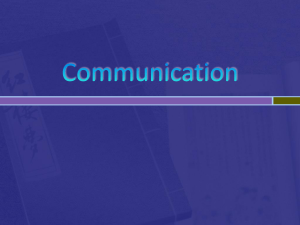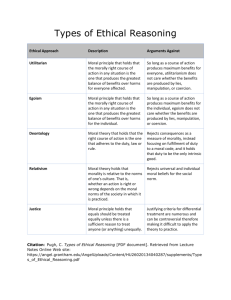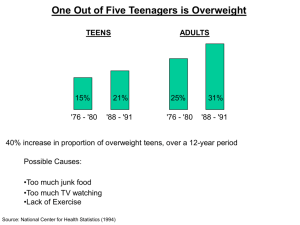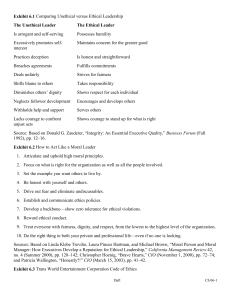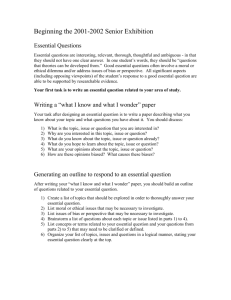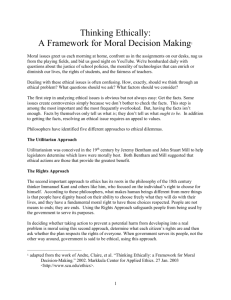Narrowing the Gulf "When it Counts: Critical Thinking in a Moral
advertisement
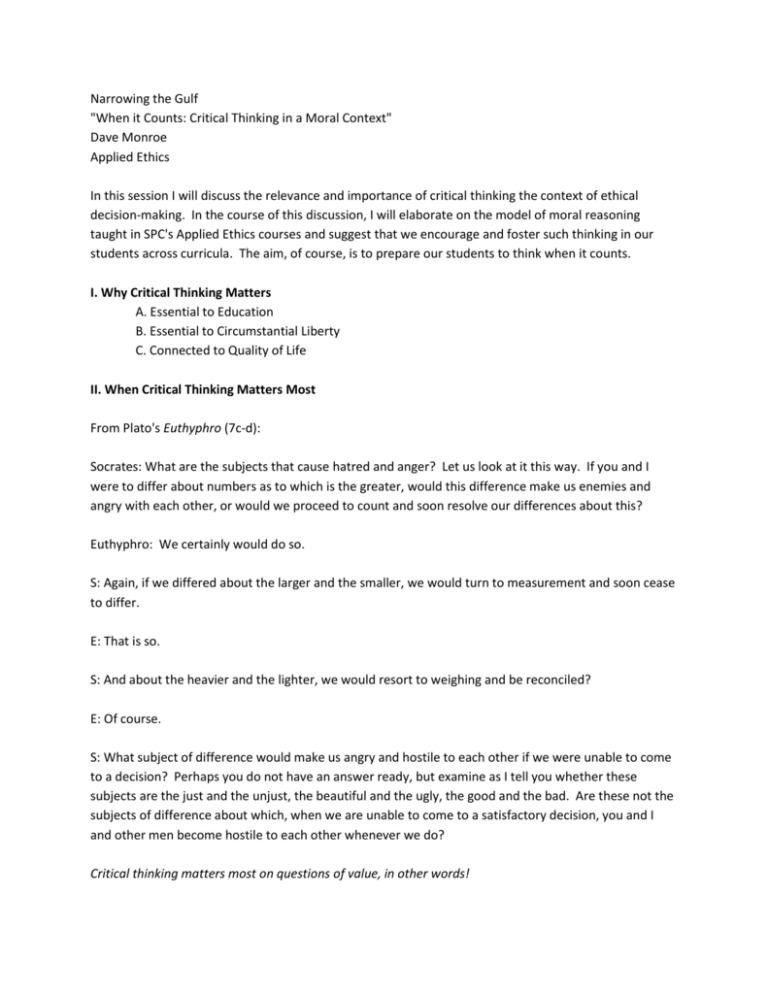
Narrowing the Gulf "When it Counts: Critical Thinking in a Moral Context" Dave Monroe Applied Ethics In this session I will discuss the relevance and importance of critical thinking the context of ethical decision-making. In the course of this discussion, I will elaborate on the model of moral reasoning taught in SPC's Applied Ethics courses and suggest that we encourage and foster such thinking in our students across curricula. The aim, of course, is to prepare our students to think when it counts. I. Why Critical Thinking Matters A. Essential to Education B. Essential to Circumstantial Liberty C. Connected to Quality of Life II. When Critical Thinking Matters Most From Plato's Euthyphro (7c-d): Socrates: What are the subjects that cause hatred and anger? Let us look at it this way. If you and I were to differ about numbers as to which is the greater, would this difference make us enemies and angry with each other, or would we proceed to count and soon resolve our differences about this? Euthyphro: We certainly would do so. S: Again, if we differed about the larger and the smaller, we would turn to measurement and soon cease to differ. E: That is so. S: And about the heavier and the lighter, we would resort to weighing and be reconciled? E: Of course. S: What subject of difference would make us angry and hostile to each other if we were unable to come to a decision? Perhaps you do not have an answer ready, but examine as I tell you whether these subjects are the just and the unjust, the beautiful and the ugly, the good and the bad. Are these not the subjects of difference about which, when we are unable to come to a satisfactory decision, you and I and other men become hostile to each other whenever we do? Critical thinking matters most on questions of value, in other words! III. Applied Ethics 6.0 Model of Ethical Reasoning This is the model of moral reasoning we teach at SPC in PHI 1600. It is one of many possible models of moral deliberation, but we think it is effective in helping students learn CT skills with respect to the moral quandaries they may face in life. The point of my sharing this is that you may see something of value to incorporate in your curriculum; after all, CT is a skill that needs refinement and practice, and ethical issues show up everywhere. A. Identification 1. Developing moral sensitivity--recognizing problems. 2. Disentangling knots of issues and prioritizing them B. Research 1. Information gathering--others have faced similar problems 2. Critical thinking must be informed (avoid judgments based on partial truth). C. Analysis 1. Consideration of options--how might one resolve this issue? 2. Consideration of stakeholders--who's affected by this issue? 3. How do the options you're considering affect the stakeholders? D. Application 1. Recognizing and applying relevant ethical principles to help sort options. 2. Guide us to conclusion. 3. In PHI 1600 we have the students apply the "first principles" of major moral theories. E. Decision 1. Selecting and defending the option that one thinks is morally best. 2. Should be a well-considered conclusion rather than "mere opinion" 3. Should reflect use of process. F. Evaluation 1. A re-examination of one's assumptions and consideration of alternate views and objections. G. Reflection 1. Self-evaluation and reflexive consideration of one's thoughts, resolutions, etc. 2. Hindsight's 20/20!
